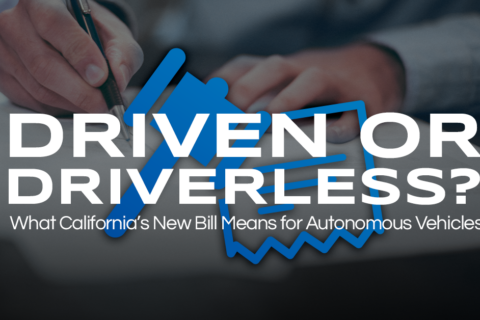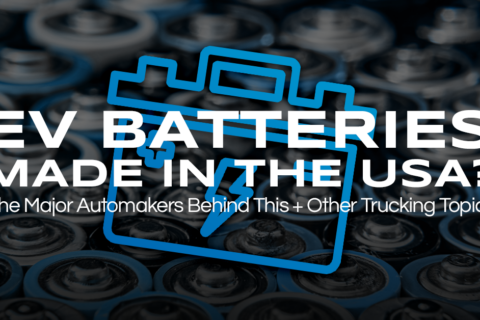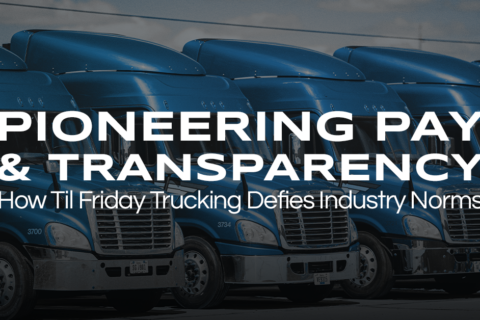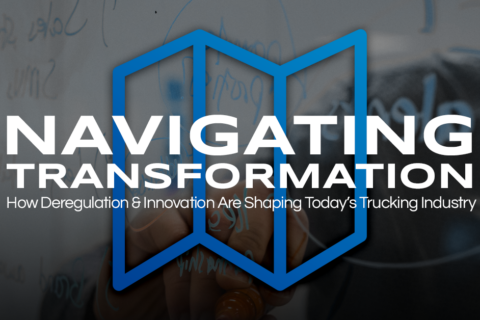As the trucking and logistics industry continues to adapt and evolve, staying informed of the latest news and trends is crucial for all involved. In this week’s news recap from Optimum Logistics, we delve into the challenges facing Maine’s trucking industry as it transitions to electric vehicles, explore the harrowing discovery made by a heroic trucker in a human trafficking case, and discuss the impact of a game-changing merger in the logistics sector. Keep reading for a comprehensive analysis of these pivotal events, as well as expert insights and implications for the future of our industry. Maine Trucking Industry’s Electric Hurdles Maine’s trucking industry is facing challenges in its transition to electric vehicles. The primary issues include the absence of higher-voltage charging infrastructure, limited driving range per charge (which drops significantly in sub-freezing temperatures), and the substantial weight of batteries, which would mean trucks carrying fewer goods and potentially more trucks on the road. Furthermore, trucking experts such as Patrick Strauch, Executive Director of Maine Forest Products Council, argue that a mandate for electric- or hydrogen-powered vehicles does not make sense given these challenges, particularly for the forest industry, where trucks are large, carry heavy loads, and often operate in remote northern areas of the state. Weighing Costs and Benefits of Electrification At a public hearing of the Maine Board of Environmental Protection, discussions revolved around adopting California Advanced Clean Truck regulations, aimed at reducing emissions from heavy vehicles. The proposal in Maine would require 82% of vehicle sales to be zero emission by a certain deadline. Supporters like Emily Green of the Conservation Law Foundation believe this is necessary, as vehicles relying on fossil fuels contribute over half of Maine’s greenhouse gas emissions. However, the rapid implementation of these regulations is a concern for business owners like Brian Bouchard, CEO of H.O. Bouchard, who notes that long charging times and limited driving range would be problematic for trucks traveling long distances. While electrified trucks might work for local deliveries and in ports, there are significant obstacles to their use in northern Maine for transporting agricultural products, according to Bob Whited, CEO of Whited Peterbilt of Maine. 🔗 Read the full article here Heroic Trucker Unveils Disturbing Secret In a horrifying encounter, a truck driver known only as Michael discovered human traffickers with multiple children confined in a cage in the back of a pickup truck. The event took place on June 18, 2023, around 1 a.m. at a dark rest stop off I-10. Michael, who has since been recognized as a TCA Highway Angel by the Truckload Carriers Association, noticed a white pickup truck with a tarp and cage parked nearby. He watched as a woman got out of the truck, unlocked the padlocked cage, and escorted three or four young girls, no older than three or four years old, to the restroom. Upon their return, the driver of the pickup forced the children back into the cage, locked it, and covered it with a tarp. In Pursuit of Justice Immediately, Michael called the police, read the truck’s license plate in the dark, and actually went as far as to follow the fleeing pickup. The police managed to pull the truck over a few miles ahead, with officers arriving in large numbers. Michael stayed to provide his statement to the police, who informed him that such incidents happen frequently and that many of the children had been reported missing. They revealed that even more children were found inside the cage, with hammocks holding kids at the top and the bottom filled with children. Michael, a father of two young children, was deeply shaken by the traumatic discovery. Police advised him to leave the scene for his safety, in case anyone associated with the traffickers was observing. Michael captured some of the events on video, which can be viewed below. 🔗 Read more about Michael’s heroism in this full article here A Game-changing Merger in Logistics In the aftermath of Yellow Corp.’s bankruptcy, the less-than-truckload (LTL) logistics sector has been left wondering about its future. Quickly stepping in to fill the gap, Forward Air Corporation, known for its asset-light transportation services spanning LTL, truckload, and local pickup and delivery, announced its merger with Omni Logistics, a provider of multimodal air, ocean, and ground logistics services. The combined entity will boast over 300 service locations nationwide, with the addition of Omni’s 40-plus U.S. terminals complementing Forward’s network of terminals near or at U.S. airports. Despite the lingering overcapacity in the trucking industry, this consolidation represents a strategic move to capture a larger market share. Racing to Fill the Void The acquisition came shortly after the cessation of Yellow’s operations, with Tom Schmitt, Chairman and CEO of Forward Air Corporation, revealing in an earnings call that the company was already seeing an uptick in business from former Yellow customers. Glenn Koepke, general manager of network collaboration at supply chain visibility platform FourKites, emphasized the need for agility and competitiveness to create a margin-positive business. The deal is not just about absorbing Yellow’s leftover freight share, but also about leveraging unique strategic complementarities, says Jason Miller, interim chairperson at Michigan State University’s Eli Broad College of Business. The merger is expected to bring improved efficiencies, especially in timeliness, benefiting shippers with higher service levels. A Win-Win Scenario Omni’s significant contribution to LTL freight, comprising 35 percent of its business, is poised to bolster Forward’s expedited LTL ambitions as companies scramble to fill the void left by the 99-year-old Yellow. The long-term implications of the merger extend to enhancing Forward’s international capabilities, leveraging Omni’s presence in Europe, Asia, and South America. The integration is expected to drive high-margin freight to Forward’s LTL network and provide access to over 7,000 new customers in high-growth, high-value end industries. Omni’s customers, in return, are set to benefit from faster transit times, improved on-time performance, and lower claims rates. Forward’s Growth Journey The acquisition follows Forward’s purchase of 300-truck full-service expedited LTL carrier Land Air Express and…











Recent Comments